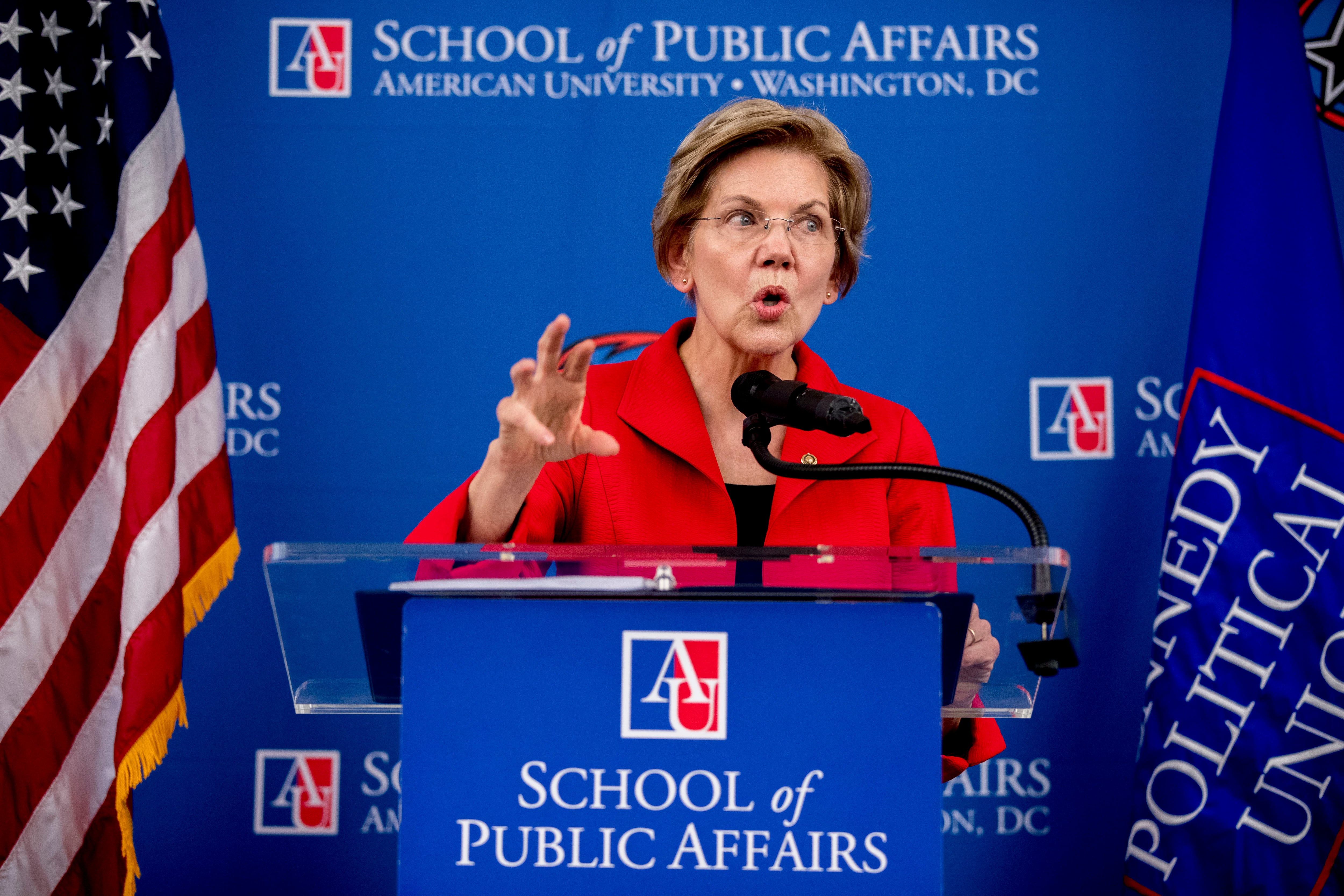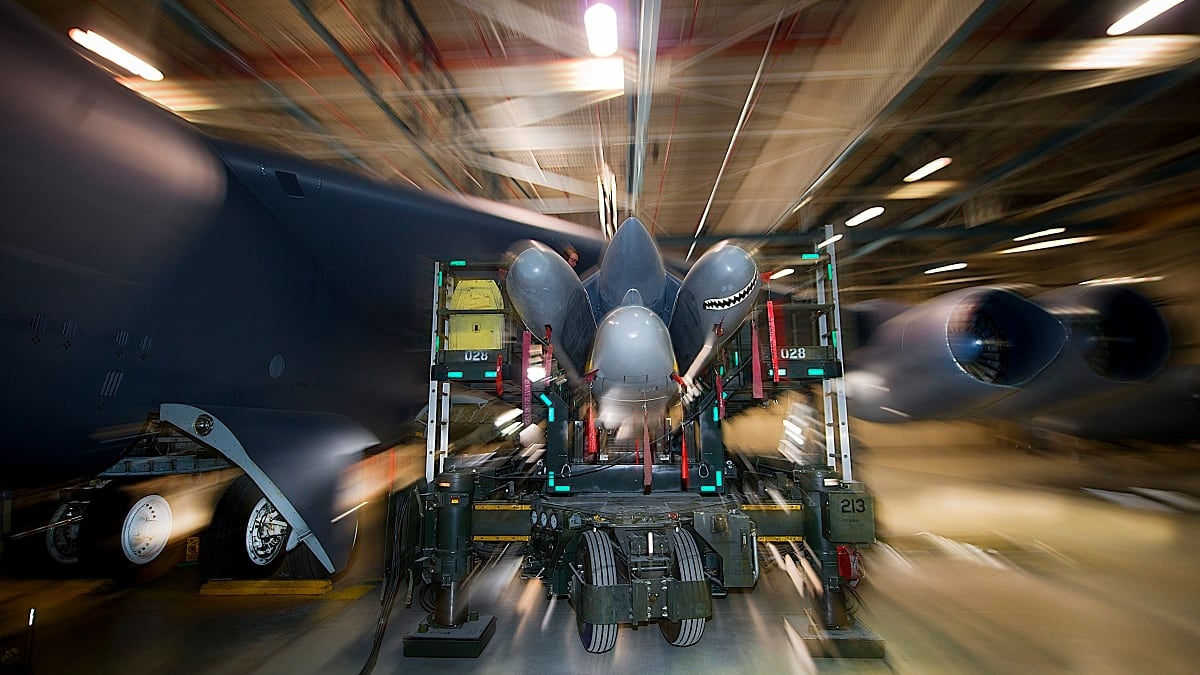WASHINGTON — A powerful skeptic of U.S. nuclear weapons spending, House Armed Services Committee chairman Adam Smith said Tuesday he was open to cutting back quantities of nuclear arms instead of one leg of the nation’s nuclear triad.
The comments, at the Carnegie Endowment for International Peace’s annual nuclear arms forum, came days after Smith, D-Wash., triggered Republican pushback when he said publicly that the intercontinental ballistic missile leg of the triad is not necessary to deter Russia and China. On Tuesday, Smith seemed to soften on that argument, conceding he believes nuclear weapon systems ought to be modernized but maintaining his stance the U.S. needs fewer nuclear weapons.
“I think a deterrent policy, having enough nuclear weapons to ensure that nobody launches a nuclear weapon at you because you have sufficient deterrent, I think we can do that with fewer warheads,” Smith said. “I’m not sure whether that means getting rid of one leg of the triad or simply reducing the amount in each leg.”
RELATED

At a March 6 hearing, Smith had said ICBMs aren’t “necessary for deterrence because of the submarines we have and the bombers,” though a few HASC Democrats at the hearing parted with those remarks.
The episode highlighted the internal divisions and partisan cross currents facing Smith. Without specifying who, Smith acknowledged Tuesday that colleagues are viewing his fresh approach to limiting nuclear arms, “with trepidation.”
“When it comes to the nuclear stuff in particular, they’re a little bit freaked out by what I’ve been saying, to be perfectly honest with you, because it’s not been said” before, Smith said of his colleagues. “[It’s] the mere fact that I don’t want to spend as much money as is humanly possible on what they want, the fact that somebody is asking the question... but let’s just hold up a minute here.”
The Trump administration is rolling out a $750 billion budget for national defense that represents a $34 billion increase over FY19 and includes a 9 percent increase for the National Nuclear Security Administration budget. The NNSA has five major modernization programs underway, including the W76-2, a controversial low-yield warhead for the submarine-launched Trident II D5 ballistic missile.
Smith maintained his opposition to the W76-2 but tamped down expectations that Democrats, who widely oppose the warhead, would be able to scuttle it, as Republicans control the Senate and the presidency.
“I would like to kill the low-yield nuclear weapon program. I don’t think it’s a good idea,” Smith said. “Many others disagree with me; we’ll see how that plays out.”
Overall, Smith said he wants to press the Pentagon to operate more effectively and efficiently and to create more maneuvering room for other priorities, especially in light of President Donald Trump’s FY20 budget.
“I think that there are other important priorities in this country and if we spend all the money on defense we might be able to meet those priorities. Witness the budget the president just presented,” Smith said. “We got a $600 billion dollar shortfall in infrastructure. [Trump] wants to cut it by another 5 percent."
On Trump’s plans to boost defense by $34 billion, Democrats are fractured, House Budget Committee Chairman John Yarmuth, D-Ky., acknowledged to reporters on Monday.
“I don’t think we have many members who want to go that high, [but] I think we have some members who want an increase in defense spending,” Yarmuth said. “We have members who want to cut defense spending. I think the pressure from the Democrat side is more internal.”
RELATED

As the annual defense policy bill is drafted in the coming months, there’s friction over nuclear weapons expected between Smith and, chiefly, his Republican counterpart leading the Senate Armed Services Committee, Sen. Jim Inhofe.
Still, Smith repeated Tuesday that he is committed to reaching a bipartisan compromise for an annual defense policy bill that the president will sign, in order to ensure the Defense Department functions properly.
To press Smith and other lawmakers, Republicans are highlighting views from the defense establishment. Last week, SASC Strategic Forces Subcommittee Chairwoman Deb Fischer, R-Neb., issued a statement blasting Smith’s ICBM remarks and excerpting testimony from U.S. Strategic Forces Command’s Gen. John Hyten.
“Both the Obama and Trump administrations agree on the value of the triad, as has every administration since the Eisenhower-era. The testimony from our senior military leaders has also been clear and consistent: Our nuclear triad is necessary to keep our nation safe,” Fischer said.
Hyten told lawmakers earlier in the month that the ICBM is the most ready element to respond to a quick surprise attack, because there are 400 separate targets across the United States; all would have to be independently targeted by an adversary.”
Joe Gould was the senior Pentagon reporter for Defense News, covering the intersection of national security policy, politics and the defense industry. He had previously served as Congress reporter.







